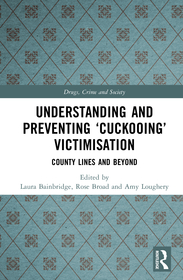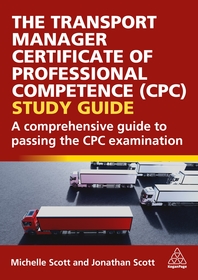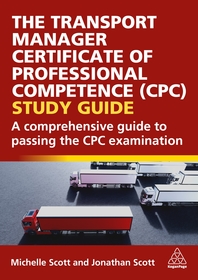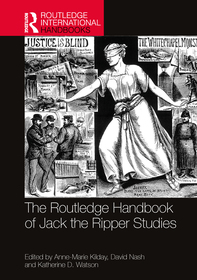
Problem-Based Learning for Engineering Education
Developing the Engineers of the Future
-
10% KEDVEZMÉNY?
- A kedvezmény csak az 'Értesítés a kedvenc témákról' hírlevelünk címzettjeinek rendeléseire érvényes.
- Kiadói listaár GBP 91.99
-
43 948 Ft (41 855 Ft + 5% áfa)
Az ár azért becsült, mert a rendelés pillanatában nem lehet pontosan tudni, hogy a beérkezéskor milyen lesz a forint árfolyama az adott termék eredeti devizájához képest. Ha a forint romlana, kissé többet, ha javulna, kissé kevesebbet kell majd fizetnie.
- Kedvezmény(ek) 10% (cc. 4 395 Ft off)
- Kedvezményes ár 39 553 Ft (37 670 Ft + 5% áfa)
Iratkozzon fel most és részesüljön kedvezőbb árainkból!
Feliratkozom
43 948 Ft

Beszerezhetőség
Még nem jelent meg, de rendelhető. A megjelenéstől számított néhány héten belül megérkezik.
Why don't you give exact delivery time?
A beszerzés időigényét az eddigi tapasztalatokra alapozva adjuk meg. Azért becsült, mert a terméket külföldről hozzuk be, így a kiadó kiszolgálásának pillanatnyi gyorsaságától is függ. A megadottnál gyorsabb és lassabb szállítás is elképzelhető, de mindent megteszünk, hogy Ön a lehető leghamarabb jusson hozzá a termékhez.
A termék adatai:
- Kiadás sorszáma 1
- Kiadó Routledge
- Megjelenés dátuma 2025. december 23.
- ISBN 9781032863665
- Kötéstípus Keménykötés
- Terjedelem318 oldal
- Méret 234x156 mm
- Nyelv angol
- Illusztrációk 17 Illustrations, black & white; 1 Halftones, black & white; 16 Line drawings, black & white; 38 Tables, black & white 700
Kategóriák
Rövid leírás:
This book embarks on an in-depth exploration of Problem-Based Learning (PBL) in the context of engineering education.
TöbbHosszú leírás:
This book embarks on an in-depth exploration of Problem-Based Learning (PBL) in the context of engineering education. Its overarching goal is to provide a comprehensive understanding of the genesis, potential, challenges, contemporary relevance, and methodological approaches of PBL. The impetus behind this undertaking arises from the acknowledged challenges within engineering education, necessitating a fundamental paradigm shift. The study's justification lies in the imperative adoption of innovative teaching methodologies for student performance improvement and fostering competency among engineering graduates.
The narrative unfolds across four distinct sections: Background and Theoretical Perspectives; Methodological Aspects of PBL; Implications of PBL in Engineering Education and Case Studies; and Plausible Examples and Reflections and Future Direction.
Part I establishes a robust foundation by defining PBL, tracing its historical roots, and weighing its potential against challenges. A critical examination of PBL's relevance underscores the urgent need for a paradigm shift in engineering education. The part weaves a "golden thread" that permeates subsequent explorations. A theoretical perspective of PBL follows, exploring its underpinnings and theoretical frameworks. This is complemented by a comparative analysis, offering insights into PBL's efficacy compared to traditional learning methods.
The second part examines the alignment of PBL with Outcomes-Based Education, lays the groundwork for a coherent and practical integration of these educational approaches within the Engineering curriculum, and also offers methodological approaches to deliver and practice PBL.
Part III explores PBL's application for reinforcing engineering education, emphasising its tangible impact. It probes into PBL as a means to instil entrepreneurial attributes in students and further expands to encompass the decolonisation and internationalisation of engineering education through PBL.
The final part provides case studies, offer plausible examples, reflects on the lessons learned and draws insightful conclusions, synthesising the findings into a cohesive whole.
Overall, this book seeks to make a substantial contribution to the ongoing discourse on innovative teaching methodologies, particularly within the context of engineering education. Through a meticulous examination of theoretical foundations, comparative analyses, and the provision of practical methodologies, it aims to serve as a valuable resource for educators, researchers, and policymakers who seek to enhance the effectiveness and relevance of engineering education in our ever-evolving world.
TöbbTartalomjegyzék:
Part I: Background and Theoretical Perspectives. 1. Problem-Based Learning (PBL): Background. 2. Problem-Based Learning: Theoretical Foundations and Pedagogical Approaches. 3. A Comparative Analysis of Problem-Based Learning and Traditional Methods of Learning. 4. Challenges in Engineering Education and the Prospective Role of Problem-Based Learning. Part II: Methodological Aspects of PBL. 5. Alignment of Problem-Based Learning with Outcomes-Based Learning. 6. A Methodological Approach for Problem-Based Learning in Engineering Education. Part III: Implications of PBL Engineering Education. 7. Problem-Based Learning for Reinforcing Engineering Education. 8. Problem-Based Learning as a Means for Embedding Entrepreneurial Attributes Among Engineering Students. 9. Decolonisation and Internationalisation of Engineering Education through Problem-Based Learning. Part IV: Case Studies, Plausible Examples, and Reflections and Future Direction. 10. Problem-Based Learning in Engineering: Case Studies Across Disciplines. 11. Plausible Examples of Problem-Based Learning. 12. Reflections and Future Directions in Problem-Based Learning for Engineering Education.
Több










